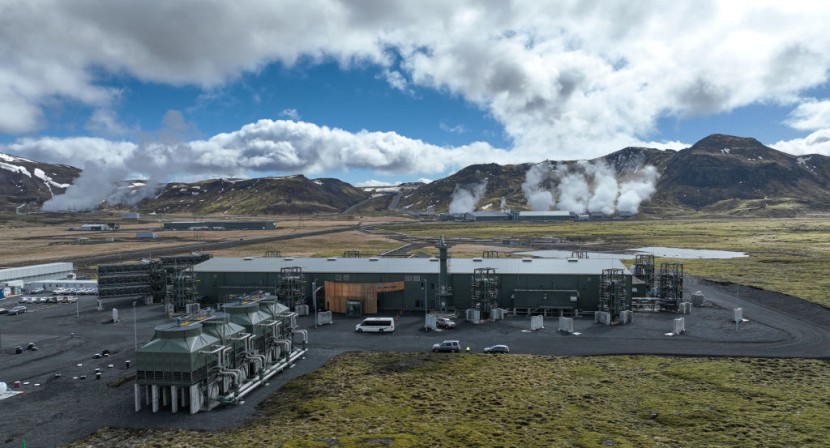
A Swiss company recently launched the world's largest carbon removal plant, in Iceland - in an effort to fight climate change, as scientists warn that the world must take imminent action to reduce emissions.
Parent company Climeworks built the direct air capture (DAC) facility in Hellisheiði, Iceland, with the hopes of someday expanding to the United States. In the meantime, however, the company boasts that its new plant - named Mammoth - will be able to remove 36,000 tons of carbon dioxide from the atmosphere.
"Starting operations of our Mammoth plant is another proof point in Climeworks' scale-up journey to megaton capacity by 2030 and gigaton by 2050," Jan Wurzbacher, co-founder and co-CEO of Climeworks said, according to Reuters.
Climeworks has a history of capitalizing on carbon removal. In the past, the company has sold harvested carbon dioxide to Coca-Cola, which in turn used the gas to produce carbonated drinks. Climeworks also partners with major corporations, including Microsoft, to remove some of their emissions from the atmosphere.
While 36,000 tons of carbon dioxide may seem like a significant number, critics have argued that it's ultimately more constructive to just emit less gas in the first place. Microsoft alone produced 13 million tons of carbon dioxide in 2022, according to the Verge.
Lili Fuhr, director of the fossil economy program at the Center for International Environmental Law, told CNN that carbon capture technology "is fraught with uncertainties and ecological risks."
Jonathan Foley, executive director of the climate non-profit Project Drawdown, also criticized the technology in a December essay for Scientific American entitled "Don't Fall for Big Oil's Carbon Capture Deceptions."
"Industrial carbon capture projects are far too small to matter. Even after decades of investment, research and development, today's largest carbon capture projects only remove a few seconds' worth of our yearly greenhouse gas emissions," he wrote.
"Carbon capture is being used to distract the world from rapidly phasing out fossil fuels, all on the taxpayer's dime."








